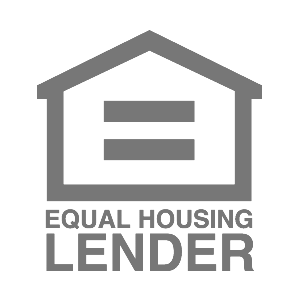
There are many pros and cons to home equity loans. On one hand, they can help you get the funds you need to grow your family, renovate your kitchen, or pay for unexpected medical expenses. On the other hand, they put your home at risk of foreclosure if you can’t repay.
If you want to access the money you’ve built up in your home’s value, you have two main financing options: home equity lines of credit (HELOCs) and home equity loans (HELoans).
Weighing the pros and cons of each can help you make an educated choice on whether they’re right for you.
In This Article
Advantages and disadvantages of a home equity loan
Is a home equity loan right for you? Would a HELOC be a better option? It all depends on your unique situation and needs. Let’s look at some home equity loan pros and cons.
Pros of a home equity loan
- Fixed interest rate: Most HELoans have a fixed rate, which is a rate set at the time of the loan that doesn’t change for the life of the loan (so long as you make payments on time). The main advantage of a fixed-rate loan is that you’re protected from potentially significant monthly payment increases if interest rates rise.
- Lower interest rates: Your house is the asset that backs your home equity loan, which means you’ll generally receive lower interest rates than credit cards, personal loans, or other unsecured loan types.
- Lump sum: With a HELoan, you receive a lump sum after closing on the loan. This makes a HELoan excellent for larger home renovation projects, credit card debt consolidation, medical expenses, and other scenarios where you need a fixed, large sum of money.
- Potential home value increases when used for home improvement: Tapping your home equity to pay for home improvements is a great move if those upgrades increase your home’s value. By carefully investing your loan funds in your home, you could potentially sell your property for a higher price in the future.
- Possible tax benefits: You can potentially deduct home equity loan interest from your taxes if you use them for home renovations. We recommend consulting a tax professional or accountant before claiming your interest on your taxes, as this deduction only applies in certain circumstances.
- Keeping your existing mortgage: If interest rates have risen significantly, a HELoan can be a better alternative to a cash-out refinance because you can keep your current mortgage while still accessing up to 95% of your home’s value—all without refinancing.
Cons of a home equity loan
- Home as collateral: Home equity loans are secured loans that use your house as collateral. A failure to keep up with payments can lead to foreclosure.
- Closing fees: As a type of second mortgage, home equity loans can take some time to close and may have upfront costs. The application process involves paperwork and can be slow. You may also have to pay closing fees, similar to when you bought your home.
- Reduced equity availability: Your home equity is the percentage of the home you own. Taking out a home equity loan reduces your available equity.
- Fixed interest rate: A fixed interest rate is a double-edged sword. A variable rate may go down or up depending on market conditions. Fixed rates insulate you from rate increases and provide greater cost certainty but may cost more depending on market conditions.
🤔Would a HELOC be a better option?
HELOCs have many of the same pros and cons as home equity loans. The main difference is that HELoans usually have a fixed interest rate and are disbursed as a lump sum instead of a draw period in which you can draw funds at will (up to the credit limit).
What is home equity?
To put it simply, home equity is the current value of your home minus the amount you still owe on your mortgage. You build equity in two ways.
- Paying down your mortgage balance: By paying down your mortgage principal, you’ll slowly own more of your home and owe less to the bank. But building equity this way is often a long-term endeavor. In the early years of a 30-year mortgage, most of your payment goes toward interest.
- Property value fluctuation: One of the reasons personal finance experts so laud homeownership is that, historically, real estate values generally rise. Property values can go up and down in the short term, but they almost always rise in the long run, which can also help you build more equity.
What Is a home equity loan?
A home equity loan (HELoan) is a form of second mortgage that lets you access some of the equity you’ve built up in your home. It provides you with a lump sum of cash and typically features fixed payment terms for 5–30 years.
Just like your original mortgage, a HELoan is secured by your home in case of default and has similar closing costs.
How much can you borrow?
How much you can borrow with a home equity loan depends on your home equity and the lender’s guidelines.
A home equity calculator can give you a rough idea of how much you can access, but here’s an example for context:
Suppose your home is worth $500,000, and you still owe $400,000 on your mortgage. This means you have $100,000 in home equity. If your lender allows you to borrow up to 95% of your home’s value, you could potentially take out a home equity loan for up to $75,000.
Here’s how the math works:
- $500,000 (home value) × 0.95 (maximum loan-to-value ratio) = $475,000 (maximum amount you can borrow)
- $475,000 – $400,000 (existing mortgage balance) = $75,000 (maximum home equity loan amount)
What’s the difference between a HELoan and a HELOC?
A home equity loan and a home equity line of credit are both secured by your home equity, but there are some important differences.
- A HELoan is disbursed as a one-time lump sum, often with a fixed interest rate and payments on a set schedule each month after that until you repay the loan.
- A HELOC functions more like a credit card, although you don’t often receive a physical card. Instead of a lump sum, you have a credit limit and can draw funds up to that limit. It usually has a variable interest rate. During the draw period, you can access funds up to the approved amount, and as you pay that down, you can re-access those funds. You only pay interest on the amount you use. Once the draw period ends, you enter the repayment period, during which you pay down any remaining loan balance on a fixed payment schedule and can no longer access the funds.
Is a home equity loan the best choice for you?
If you need a lump sum of cash for home renovations, high-interest debt consolidation, or to help pay for a child’s college education, a home equity loan can get the funds at a relatively low interest rate.
But ultimately, only you can decide if a home equity loan is best for your circumstances. Asking yourself these questions can help you choose:
- Do I have enough equity in my home to qualify for a loan?
- Can I comfortably afford the monthly payments?
- Is a fixed interest rate and predictable payment schedule important to me?
- Do I need a lump sum of cash, or would a line of credit be better?
Frequently asked questions about HELoans
What is not a good use of a home equity loan?
Using a home equity loan for non-essential expenses like vacations or shopping trips is generally not recommended because you risk losing your home if you can’t repay it.
Instead, it’s better to use these loans for urgent expenses (like medical bills or home repairs) or expenses that will ultimately put you in a better financial spot (like debt consolidation or renovations that increase your property’s value).
What is the payment on a $100,000 home equity loan?
Your monthly payment ultimately depends on your loan terms. For a $100,000 home equity loan with a 30-year term and a fixed interest rate of 8.41%, your monthly payment could be around $763. If you shortened the payment term to 20 years, the monthly payment would increase to $862.
What would prevent you from getting a home equity loan?
Not having enough equity, having a lower credit score, having a higher debt-to-income ratio, or having unstable employment are all things that could make approvals harder. Each lender sets its own criteria, so if one denies you, another might grant you approval.
Does a home equity loan affect your credit?
A home equity loan will ultimately help your credit if you make timely payments. It helps you build your credit history and diversifies your credit mix (two important parts of your score).
Your score may temporarily dip by a few points when you first apply because the credit bureau adds a new hard inquiry to your credit report.
It may also go down if you have late or missed payments.
Written by Cassidy Horton
Cassidy Horton is a finance writer who’s passionate about helping people find financial freedom. With an MBA and a bachelor’s in public relations, her work has been published over a thousand times online by finance brands like Forbes Advisor, The Balance, PayPal, and more. Cassidy is also the founder of Money Hungry Freelancers, a platform that helps freelancers ditch their financial stress.
Eligibility for a home equity loan or HELOC up to the maximum amount shown depends on the information provided in the home equity application. Depending on the lender, loans above $250,000 may require an in-home appraisal and title insurance. Depending on the lender, HELOC borrowers must take an initial draw of the greater of $50,000 or 50% of the total line amount at closing, except in Texas, where the minimum initial draw at closing is $60,000; subsequent HELOC draws are prohibited during the first 90 days following closing; after the first 90 days following closing, subsequent HELOC draws must be $1,000, or more, except in Texas, where the minimum subsequent draw amount is $4,000.
The amount of time it takes to get funds varies. It is measured from the time the lender receives all documents requested from the applicant and depends on the time it takes to verify information provided in the application. The time period calculation to get funds is based on the first 4 months of 2023 loan fundings, assumes the funds are wired, excludes weekends, and excludes the government-mandated disclosure waiting period.
For Texas home equity products through Prosper, funds cannot be used to pay (in part or in full) non-homestead debt at account opening.
Depending on the lender, qualified home equity applicants may borrow up to 80% – 95% of their primary home’s value and up to 80% – 90% of the value of a second home. In Texas, qualified applicants may borrow up to 80% of their home’s value. HELoan applicants may borrow up to 85% of the value of an investment property (not available for HELOCs).
Home equity products through Prosper may not be available in all states.
All home equity products are underwritten and issued by Prosper’s Lending Partners. Please see your agreement for details.
Prosper Marketplace, Inc. NMLS# 111473
Licensing & Disclosures | NMLS Consumer Access
